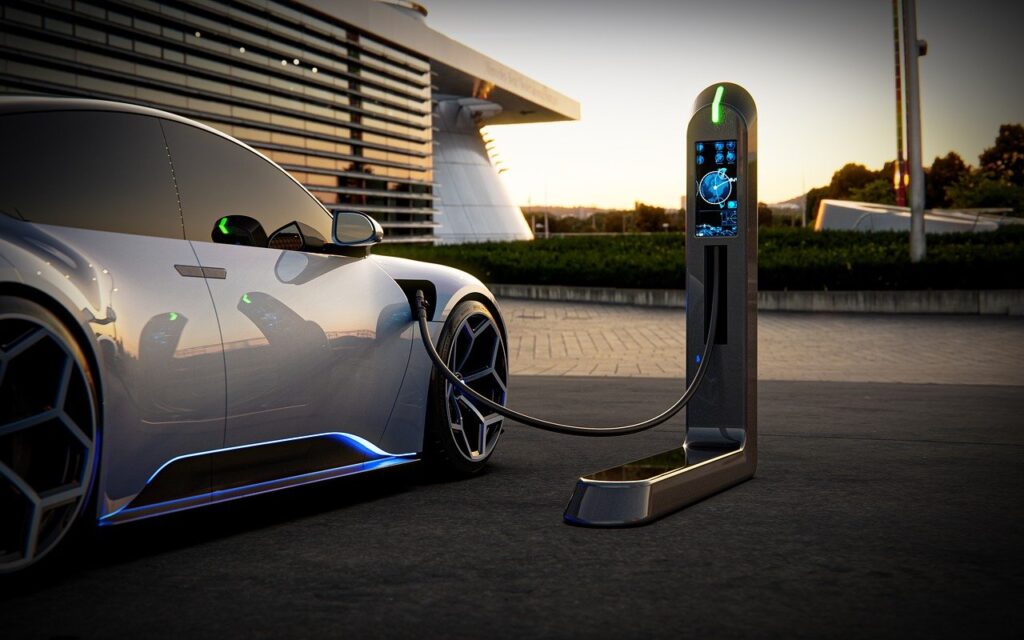Electric car technology refers to the various components and systems that make electric vehicles (EVs) function. Electric cars are powered by electricity stored in batteries, and they use electric motors for propulsion instead of internal combustion engines that run on gasoline or diesel. Here are some key aspects of electric car technology:
- Battery Technology: The heart of an electric car is its battery pack. These batteries store electrical energy that powers the vehicle. Lithium-ion batteries are the most common type used in electric cars due to their high energy density, but other types of batteries, such as solid-state batteries, are being researched for their potential to provide greater energy storage and safety.
- Electric Motors: Electric cars use one or more electric motors to drive the wheels. These motors are highly efficient and can provide instant torque, which contributes to quick acceleration.
- Charging Infrastructure: Electric cars need a network of charging stations to recharge their batteries. These can range from standard home charging setups to fast-charging stations along highways and in urban areas. Charging times vary depending on the charging speed and the capacity of the battery.
- Regenerative Braking: Electric cars often utilize regenerative braking, a technology that converts kinetic energy into electrical energy during braking. This energy is then stored in the battery, improving overall efficiency and extending driving range.
- Power Electronics: Power electronics systems, including inverters and converters, are used to manage the flow of electricity between the battery, the motor(s), and other vehicle systems. They also enable features like variable-speed motor control and rapid battery charging.
- Electric Vehicle Control Unit (ECU): ECUs manage various functions within an electric vehicle, such as battery management, thermal management, and power distribution. They also play a role in optimizing energy usage and vehicle performance.
- Thermal Management: Electric cars require sophisticated thermal management systems to regulate the temperature of the battery pack and electric motors. This helps maintain performance and prolong battery life.
- Range Management: Electric vehicles use various technologies to monitor and manage their driving range. This includes features like predictive energy usage, range estimators, and battery state-of-charge indicators.
- Safety Systems: Electric cars incorporate safety features specific to their design, including high-voltage interlock systems, battery disconnect mechanisms, and rapid first responder guides to ensure safety in case of accidents.
- Connected Features: Many electric cars are equipped with advanced connectivity features, allowing owners to monitor and control their vehicles remotely, access charging information, and receive over-the-air software updates.
- Materials and Light weighting: Manufacturers often use lightweight materials like aluminum and carbon fiber to offset the weight of the battery pack, improving efficiency and handling.
- Sustainability: Electric car technology is closely associated with sustainability and reduced greenhouse gas emissions. Many manufacturers are focused on sustainable practices in the production of EVs and batteries.
The development of electric car technology continues to evolve rapidly, with ongoing research and development efforts aimed at improving battery efficiency, reducing charging times, and increasing driving range. Additionally, advancements in autonomous driving and vehicle-to-grid (V2G) technology are further shaping the future of electric mobility.
Electric car battery
Electric car batteries are rechargeable energy storage devices used to power electric vehicles (EVs). These batteries are a critical component of electric cars, as they store and supply the electrical energy needed to propel the vehicle. Here are some key points about electric car batteries:
- Chemistry: Electric car batteries typically use lithium-ion (Li-ion) or lithium-polymer (LiPo) chemistry. Li-ion batteries are the most common due to their high energy density and long lifespan.
- Energy Storage: The capacity of an electric car battery is measured in kilowatt-hours (kWh). A higher kWh rating means the battery can store more energy and, therefore, provide greater driving range.
- Charging: Electric car batteries can be charged using various methods, including standard home outlets (Level 1 charging), dedicated home chargers (Level 2 charging), and fast chargers (Level 3 or DC fast charging). Charging times vary depending on the charger type and the battery’s state of charge.
- Range: The driving range of an electric car is determined by the battery’s capacity and efficiency. Modern EVs typically have ranges that vary from around 100 miles to well over 300 miles on a single charge.
- Lifespan: Electric car batteries degrade over time, which can affect their capacity and overall performance. However, advancements in battery technology have improved the longevity of EV batteries. Many manufacturers offer warranties for a specific number of years or miles.
- Recycling: Recycling and disposing of electric car batteries are essential to minimize environmental impact. These batteries can often be recycled to recover valuable materials like lithium, cobalt, and nickel.
- Cost: Battery cost is a significant factor in the overall price of an electric car. Advances in battery technology and increased production volumes have led to a gradual reduction in the cost of EV batteries, making electric cars more affordable.
- Regenerative Braking: Electric cars often use regenerative braking systems that capture and store energy when the vehicle slows down or brakes. This energy is then used to recharge the battery, increasing overall efficiency.
- Cooling and Thermal Management: Maintaining the optimal temperature range is crucial for the performance and lifespan of electric car batteries. Cooling and thermal management systems are integrated into EVs to ensure the battery operates within the ideal temperature range.
- Future Developments: Research and development in battery technology continue to advance. Solid-state batteries, which promise higher energy density and faster charging times, are a potential future technology that could further enhance electric cars.
Electric car batteries play a central role in the transition to more sustainable transportation by reducing greenhouse gas emissions and dependence on fossil fuels. As technology continues to evolve, electric car batteries are expected to become more efficient, affordable, and environmentally friendly.


